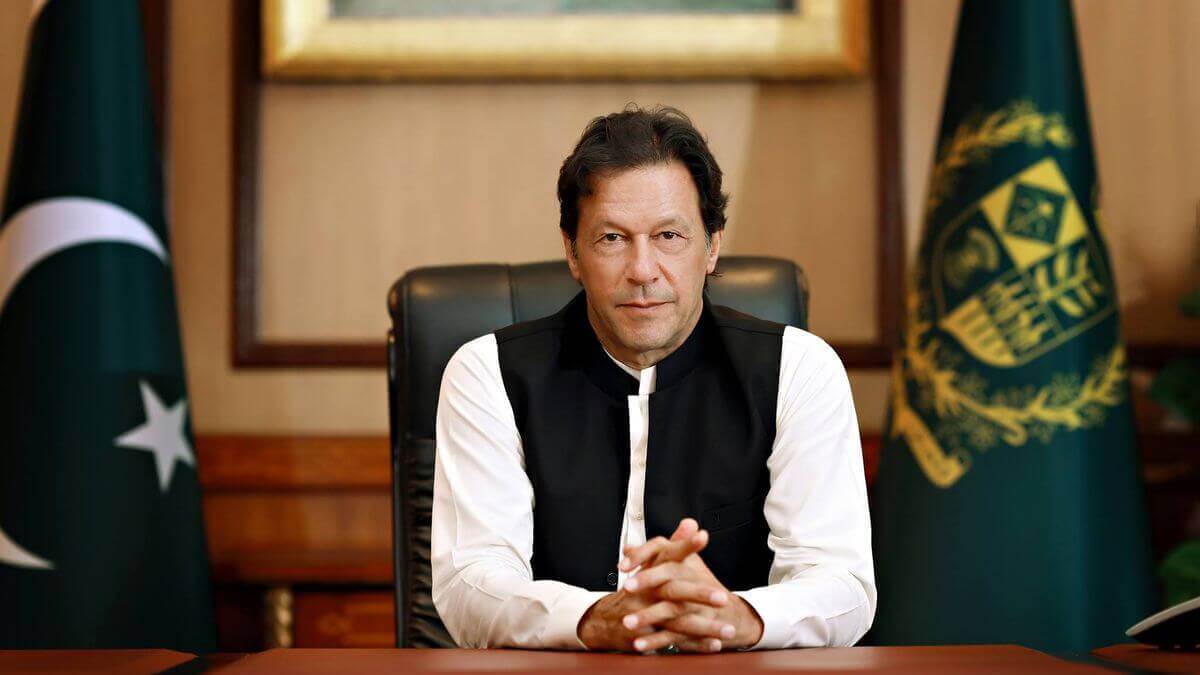On May 21, Pakistani Prime Minister Imran Khan tweeted, “I am reiterating again that a false flag operation is imminent from India in order to divert the world attention away from its ongoing genocide in IOJK.” On the same day, he added, “15 homes torched by Indian Occupation forces in Srinagar yesterday as 900k security forces subject Kashmiri’s to brutal oppression. Modi’s Hindutva Supremacist Occupation Govt is committing war crimes in IOJK including changing the demography in violation of the 4th Geneva Convention.”
Alleging that the violence in Kashmir was local, Imran Khan called for an intervention by the international community to prevent India from jeopardising “peace and security” in India. His claim was echoed by Shehbaz Sharif, the leader of the opposition party, Pakistan Muslims League (Nawaz) (PMLN), who said, “Allegation of ‘terror launching pads’ by India is meant to whip up propaganda against Pakistan!”
Responding to these accusations, Anurag Srivastava, the spokesperson for the Ministry of External Affairs, briefly dismissed the claims and belittled the allegations by saying, “Can't dignify malicious propaganda with a comment.”
This, however, is not the first time Imran Khan accused India of conducting “false-flag” operations. Following the death of five security personnel in Handwara, he said, “I have been warning the world about India’s continuing efforts to find a pretext for a false flag operation targeting Pakistan. The latest baseless allegations by India of ‘infiltration’ across LoC are a continuation of this dangerous agenda.” In fact, following his statement, Pakistan increased the patrols of fighter aircraft along its border, suspecting that India would retaliate, given that much of the terrorist groups operating in the region are sponsored by the Pakistani state or are at the very least headquartered in Pakistan.
All these statements come amidst an ongoing verbal battle between India and Pakistan. Recently, the Jammu and Kashmir Director General of Police reported that “over 300 terrorists are present in terror launch pads across the Line of Control (LoC) in Pakistan-Occupied-Kashmir (PoK), waiting to infiltrate India”. The Indian army chief, General M.M. Narvane, further accused Pakistan of sponsoring and supporting the new terror group in India called “The Resistance Front”. He also warned that the Indian Army “will give [a] proportionate response to all acts of infringement of ceasefire and its (Pakistan’s) support to terrorism”.
India and Pakistan’s current disagreement has led to more than just a “war of words”. While bilateral relations between the two neighbouring countries hit an all-time low in August following India’s decision to revoke Jammu and Kashmir’s special status, 2020 has seen a significant surge in cross-border shelling by both India and Pakistan along the Line of Control (LoC). From January to April, several officials said that there was an average of a dozen incidents per day. Pakistan has also accused India of 1,101 ceasefire violations, which allegedly led to the death of several civilians.
On May 9, Ajit Doval, India’s National Adviser, conducted a complete review of the security situation in Jammu and Kashmir. Following the assessment, he directed top Army commanders and paramilitary forces to strengthen the counter-infiltration forces along LoC and the counter-insurgency forces in Kashmir Valley. This meeting came in response to the increased militant activity in the Handwara, Baramulla, and Sopore regions. With the increased presence of the Indian army since then, the diplomatic battle of both words and arms between India and Pakistan is likely to continue and escalate further.
Image Source: The Print
Imran Khan Warns of “False Flag Operation” Against Pakistan, India Dismisses Allegations
May 22, 2020

